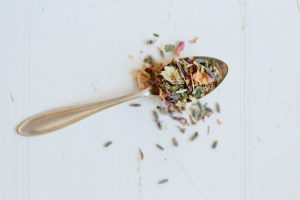The Naturopathic Co.

You're using an outdated browser. Please upgrade your browser to improve your experience.
Polyphenols should be an abundant micro-nutrient in our diet, but many of us are not consuming enough polyphenol-rich foods.
Polyphenols are compounds we get through certain plant-based foods. They can act as antioxidants; working to protect the body against oxidative stress, cancer, and inflammation, by mopping up cell mutations.
More than 8000 polyphenols have been identified in plant sources.
Polyphenol-rich foods, such as cacao and dragon fruit have significant prebiotic activity, promoting the diversity of intestinal bacteria, specifically increasing the Firmicutes to Bacteriodetes ratio, enhancing the growth of Lactobacillus and Bifidobacterium and Akkermansia muciniphila. Lactobacillus and Bifidobacterium are found in large numbers in a health gut environment, and akkermansia has been shown to increase the protective mucus barrier along the gut wall. Research shows these beneficial bacteria strains help to counteract diet-induced obesity, improve glucose homeostasis, and improve insulin sensitivity and total cholesterol levels.
A diet rich in fruits and vegetables, legumes and whole grains, such as the Mediterranean diet, increases the diversity of microbiota and encourages a shift to a healthier ratio of bacterial species, thought to be mostly due to the increase of prebiotic fibres.
Encouragingly, the microbiome responds rapidly to dietary modifications, with quantifiable effects taking place in as little as 24 hours.
They can act as antioxidants; they work to neutralise harmful oxidation and free radicals that damage cells.
Polyphenols are anti-inflammatory.
Research has found that a higher polyphenol intake was associated with lower BMI and waist circumference.
Some researchers have reported that polyphenols may lower blood pressure levels, and improve blood flow to the brain. One study showed that consuming cacao for 2 weeks led to a significant decrease in blood pressure. Another study showed cacao significantly decreased LDL (bad) cholesterol, and raised HDL (good) cholesterol.
One study reports that drinking grape juice, which is naturally rich in polyphenols, helped significantly boost memory in older adults with mild mental impairment in as little as 12 weeks!
Optimise your health by incorporating polyphenols in your diet across every meal.
For your naturopathic support, make time to see our South Yarra naturopath, Brisbane naturopath, Sydney Naturopath, Perth Naturopath, Hobart naturopath, or Adelaide Naturopath, or find out if we can help you by booking a FREE 20 minute Discovery Call online via zoom
We offer services in major cities across Australia
Yvette is a qualified Melbourne-based Naturopath and Nutritionist, MINDD Practitioner, member of the Naturopaths and Herbalists Association of Australia, and Complementary Medicine Association. Yvette specialises in the treatment of digestive complaints, skin issues, mood disorders, hormonal concerns, fatigue, and also has a key interest in children’s digestive and neurological conditions. Click HERE to book your free discovery call Australia-wide.
References
https://www.ncbi.nlm.nih.gov/pmc/articles/PMC5475289/
https://academic.oup.com/jn/article/141/11/1982/4743335
https://pubmed.ncbi.nlm.nih.gov/20028599/
https://www.medicalnewstoday.com/articles/9152
Leeming ER, Johnson AJ, Spector TD, Le Roy CI. Effect of diet on the gut microbiota: rethinking intervention duration. Nutrients. 2019 Dec;11(12):2862.
Everard A, Belzer C, Geurts L, Ouwerkerk JP, Druart C, Bindels LB, Guiot Y, Derrien M, Muccioli GG, Delzenne NM, De Vos WM. Cross-talk between Akkermansia muciniphila and intestinal epithelium controls diet-induced obesity. Proceedings of the national academy of sciences. 2013 May 28;110(22):9066-71.
Dabke K, Hendrick G, Devkota S. The gut microbiome and metabolic syndrome. The Journal of clinical investigation. 2019 Oct 1;129(10):4050-7.
Hills RD, Pontefract BA, Mishcon HR, Black CA, Sutton SC, Theberge CR. Gut microbiome: profound implications for diet and disease. Nutrients. 2019 Jul;11(7):1613.
Type 2 Diabetes Mellitus Associated with Obesity (Diabesity). The Central Role of Gut Microbiota and Its Translational Applications
Singh RK, Chang HW, Yan DI, Lee KM, Ucmak D, Wong K, Abrouk M, Farahnik B, Nakamura M, Zhu TH, Bhutani T. Influence of diet on the gut microbiome and implications for human health. Journal of translational medicine. 2017 Dec;15(1):1-7.
Comments are closed.